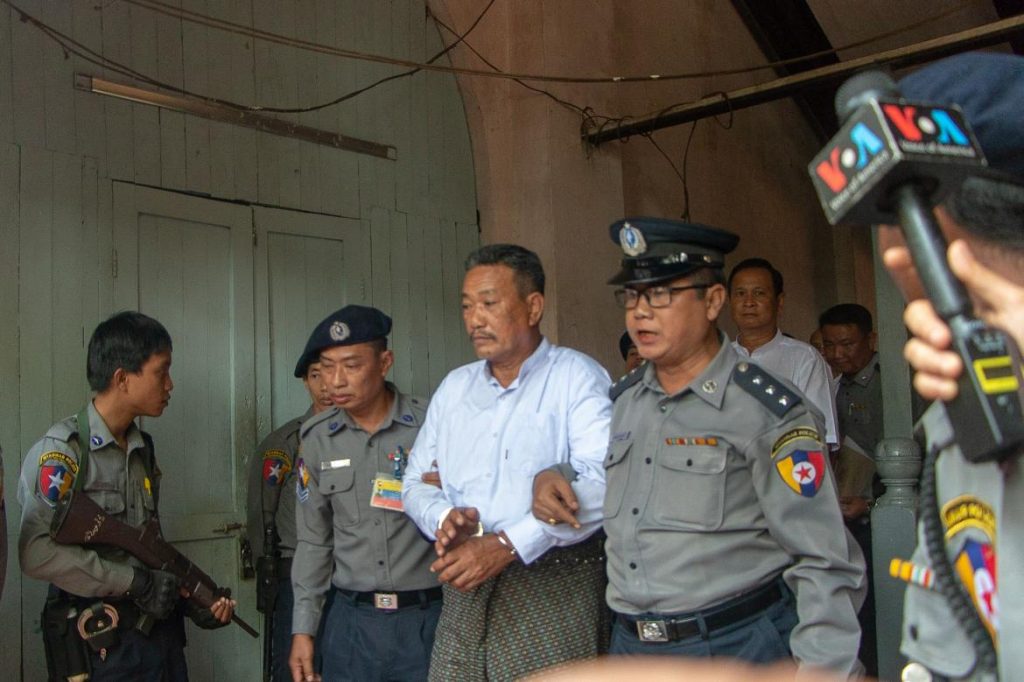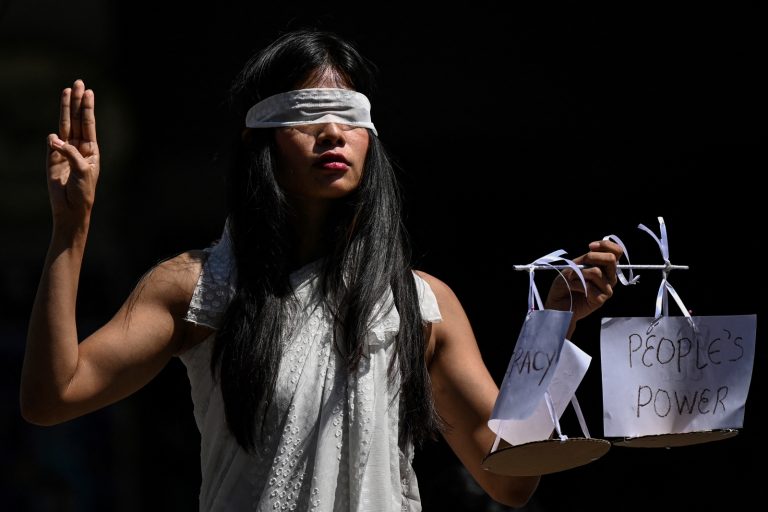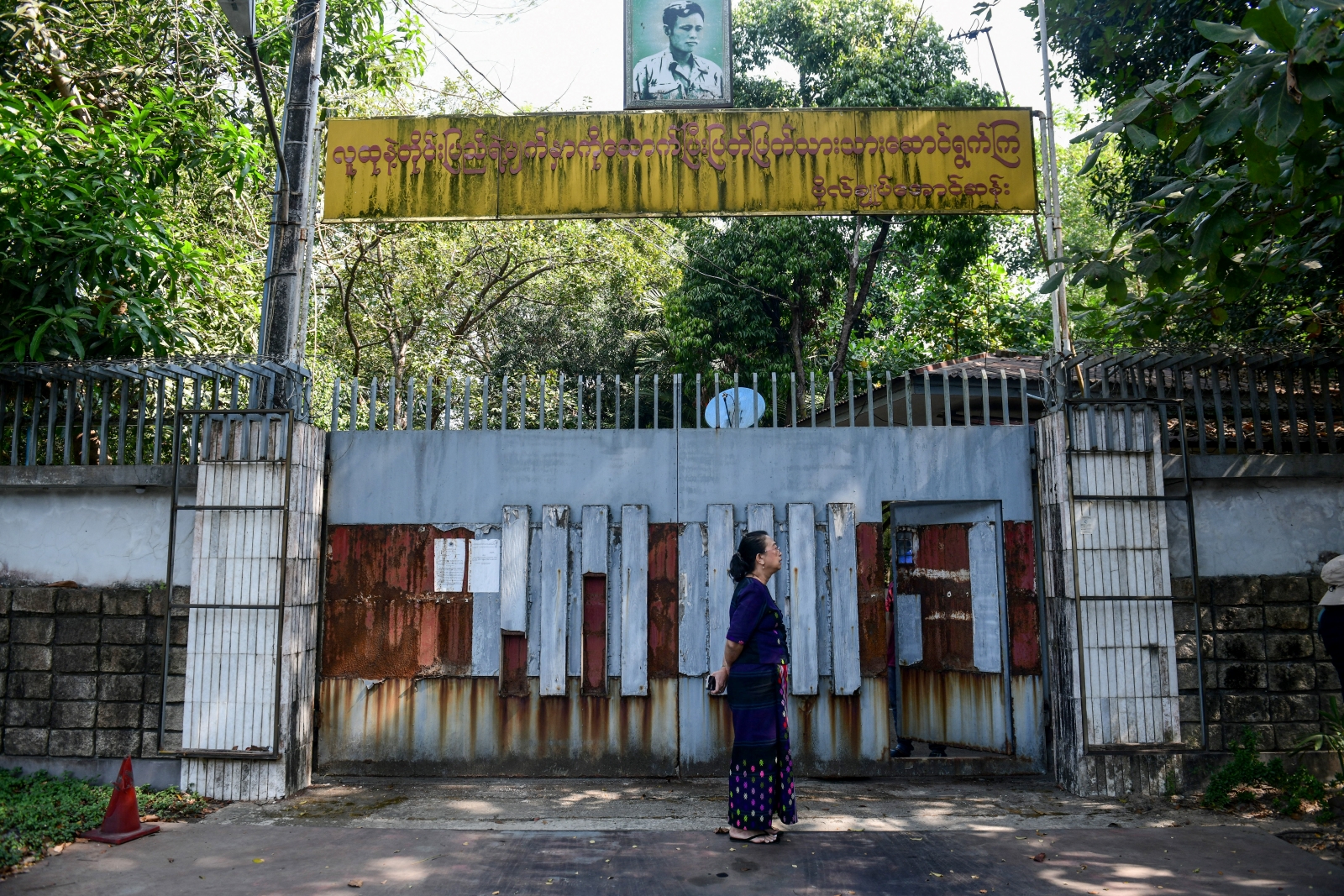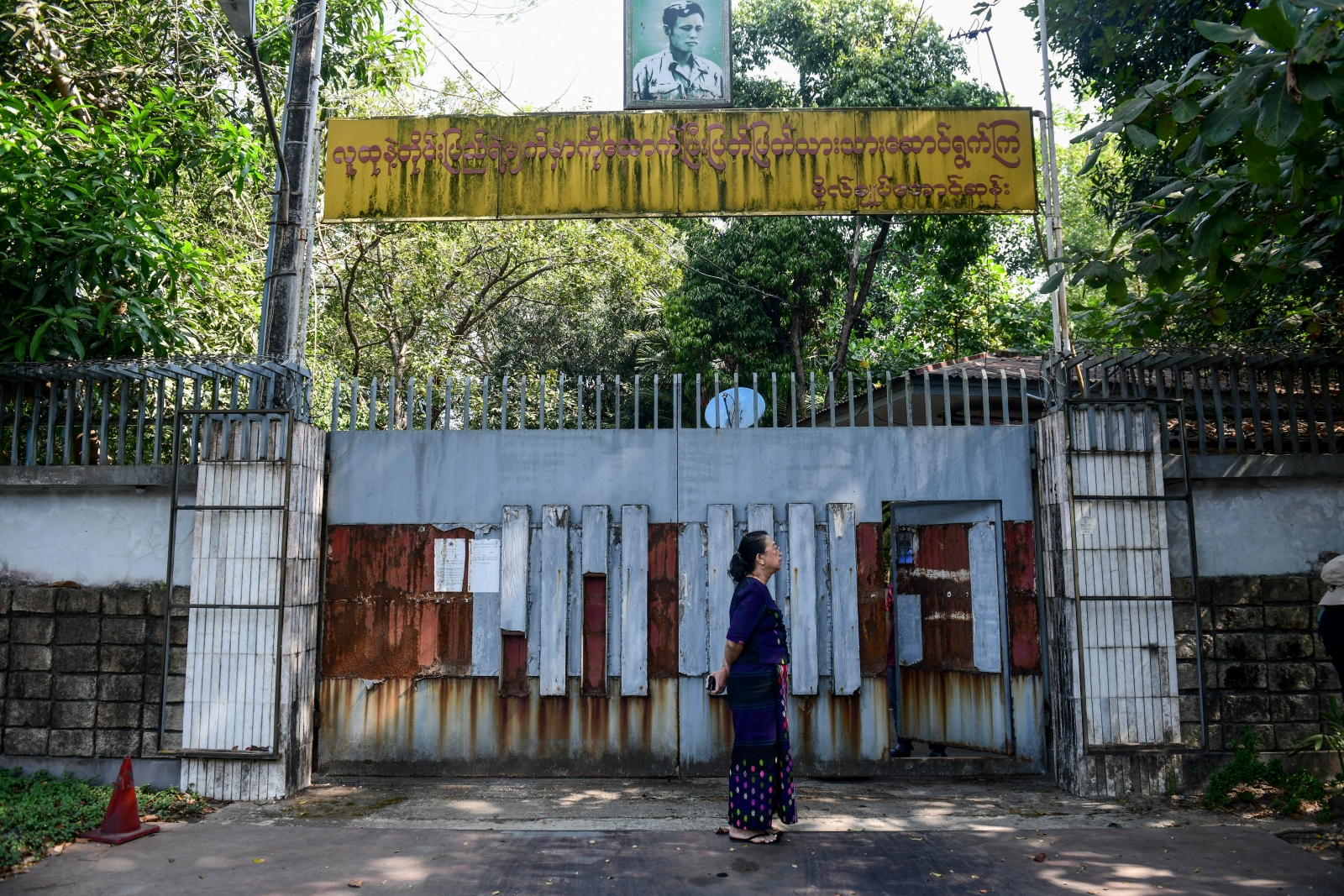By SU MYAT MON | FRONTIER
YANGON — A judge has convicted four people over the killing of constitutional expert U Ko Ni at Yangon International Airport and handed down death sentences to two defendants.
A legal adviser to the National League for Democracy and one of the country’s most prominent Muslims, Ko Ni was shot fatally outside Yangon International Airport on January 29, 2017, in a brazen attack that shocked the country.
Gunman U Kyi Lin and accomplice U Aung Win Zaw, a former military officer, were convicted of premeditated murder under section 302(1)(b) of the Penal Code and both given the death sentence.
Kyi Lin was also sentenced to 20 years’ imprisonment for causing the death of U Nay Win, a taxi driver and long-time NLD supporter who had tried to apprehend the gunman outside the airport.
Support more independent journalism like this. Sign up to be a Frontier member.
U Zeyar Phyo was given a five-year prison term with hard labour under section 201 of the Penal Code for falsifying evidence, while U Aung Win Tun received a sentence of three years for harbouring an offender.
Zeyar Phyo had previously been charged with premeditated murder and the decision to downgrade the charge came as a surprise to many observers, particularly given the former military officer had been described by the minister for home affairs as one of the masterminds of the plot.
U Khin Maung Htay, a plaintiff lawyer, said he was “not satisfied” with the sentence given to Zeyar Phyo and planned to appeal to a higher court.
“The judges decided according to their opinion but parts of [the ruling] have not met our expectations,” he said.
The verdicts were announced by Yangon Northern District Court Judge U Khin Maung Maung, who led the three-member tribunal that oversaw the case.
The sentencing ends a trial that ran for almost two years and included more than 100 hearings.
‘Extreme patriotism’
Police arrested the four suspects within days of the killing, tracking down Zeyar Phyo to a monastery on the outskirts of Yangon.
However, they have never apprehended one of the alleged masterminds, U Aung Win Khine, who is also a former military officer.
A former colonel who left the Tatmadaw in 2014, Aung Win Khine, 47, has been declared a fugitive from justice by the court. Reportedly last seen in Nay Pyi Taw shortly after the killing, he is the subject of an Interpol “red notice” issued at the request of the Myanmar police.
Minister for Home Affairs Lieutenant-General Kyaw Swe told journalists at a press conference in February 2017 that the accused were were motivated by “extreme patriotism”.
Police chief Police Major-General Zaw Win said that Ko Ni’s killers were “angry” at “what U Ko Ni had said and done on social media” and had acted immaturely.
‘A big loss for Myanmar’
Ko Ni was a constitutional expert, legal adviser to the National League of Democracy and prominent Muslim public figure. He has been credited with devising the state counsellor position for Daw Aung San Suu Kyi, which allowed her to assume high office despite provisions in the military-drafted 2008 Constitution that barred her from the presidency.
In a video message screened at a Yangon memorial ceremony to mark the two-year anniversary of the esteemed lawyer’s assassination last month, Aung San Suu Kyi called for “the truth” about the murder of U Ko Ni to be exposed.
In her message, she mourned the loss of both Ko Ni and Nay Win. “It is a big loss for Myanmar. They [Ko Ni and Nay Win] will be remembered with respect in the hearts of the people,” she said.
Ko Ni was shot dead while cradling his grandson outside the airport late on the afternoon of January 29, 2017. He had just returned from Indonesia where he participated in a leadership programme on democracy and conflict resolution as part of a delegation headed by the Minister for Information U Pe Myint.
Lengthy trial
The verdict ends a lengthy trial that was subject to numerous delays and controversies, and was conducted against a backdrop of public criticism over the Myanmar Police Force’s inability to apprehend Aung Win Khine.
A Special Criminal Tribunal of three judges was established to hear the case but its work was hampered by a transfer and a retirement. Most criminal cases are heard by a single judge.
A total of 104 hearings were held and final arguments took place on February 1.
The tribunal chairman and prosecution lawyers accused the defence lawyers of creating unnecessary delays. A total of 72 prosecution witnesses and eight witnesses for the defence testified, and more than 30 witnesses were removed from the lists submitted by both sides.
Aung Win Zaw, who is a brother of Aung Win Khine, had also threatened to take legal action over allegations that he threatened journalists and prosecution lawyers when he used a Burmese expression that can be interpreted as a warning. The expression is “htamin wa aung sar htar”, which means “eat while you can”.
On one occasion last year, supporters of the defendants appeared at the court wearing T-shirts with the slogan “htamin wa aung sar htar”, prompting the Insein Township administration to file a complaint about it with the Yangon Northern District Court.







